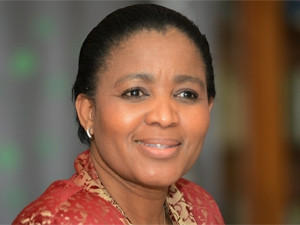
If government wants Broadband Infraco (BI) to fulfil its mandate of increasing broadband access and affordability in SA, it is going to have to invest far more substantially - as much as R80 billion more.
So says BI CEO Puleng Kwele, who has held the reins at the state-owned enterprise for a year now. Kwele says National Treasury has invested just R1.8 billion in the entity since its inception - an amount she says is "a drop in the ocean" in the telecommunications industry.
"I don't buy the assertion that the fiscus is strained. With all the research that has been done into the benefits of broadband penetration and how it benefits the economy of a country, government cannot deny it needs to invest heavily."
According to a World Bank report on broadband in developing countries, every 10% increase in broadband connectivity boosts economic growth by 1.38%.
Kwele says, taking into consideration the amount first world countries are investing in broadband coverage, it is clear SA should be following suit. "If government is serious about the country and serious about growth and playing in the league of competition, it has to address this [issue of finance]."
A schedule two company, BI was awarded an individual electronic communications network services licence in October 2009, allowing it to sell high-capacity long-distance transmission services to licensed fixed and mobile network operators, Internet service providers and other value-added network service providers. Schedule two entities are state-owned, but have to be profitable.
Last year, BI incurred a loss of R95 million, down from the R207 million loss it suffered the year before. Kwele says, as CEO, it is her responsibility to convince treasury and BI's stakeholders that funding for national broadband is critical.
She says BI is embarking on its own SA-based study "to help government understand the economics of broadband beyond the gross domestic product of a country". The findings, she believes, will make it hard for treasury to say BI does not need the money.
Kwele says government needs to set aside about R100 billion for its broadband ambitions in SA.
Share